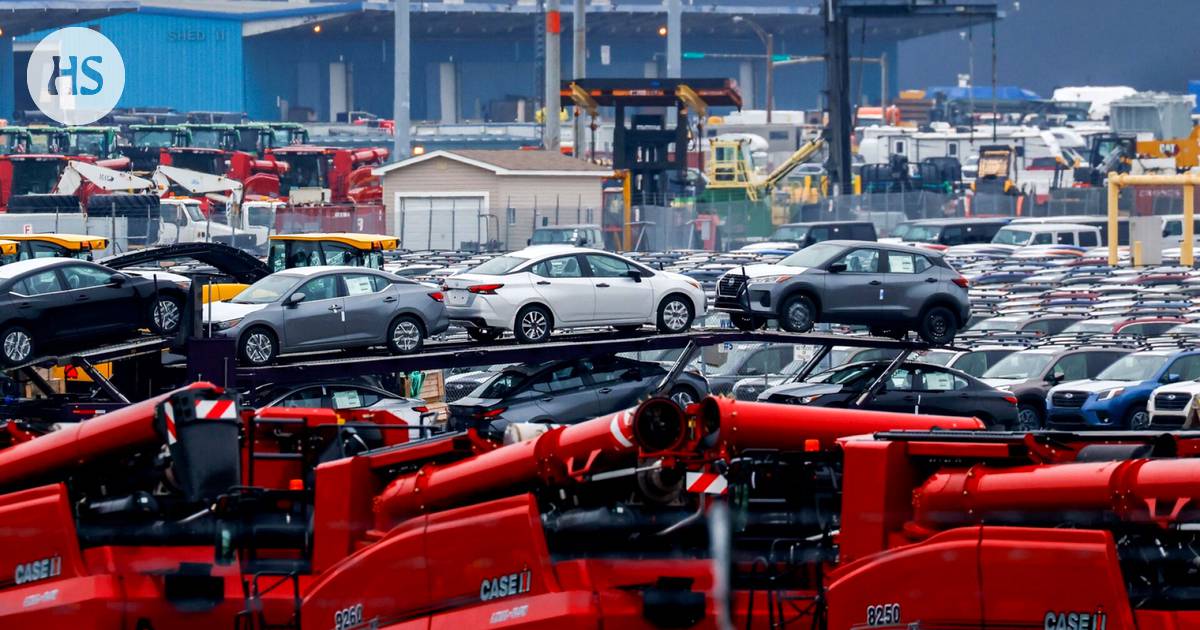A shutdown at the Port of Baltimore could have significant ripple effects on global supply chains, according to some estimates. A supply chain crisis like the corona pandemic or Suez Canal disruptions is unlikely to happen.
of the United States A bridge accident in Baltimore on Tuesday has halted operations at one of the country’s busiest ports.
The Francis Scott Key Bridge, which almost completely collapsed, is located at the mouth of Baltimore Harbor and spanned its entrance. The US authorities have announced that sea traffic passing through the port will be suspended for the time being.
The Port of Baltimore is the ninth largest foreign cargo port in the United States, but the busiest car port.
More than 750,000 vehicles were transported through the port last year. Cars from General Motors, Ford, Jaguar Land Rover, Nissan, Fiat and Audi passed through the port, says the British Broadcasting Corporation BBC.
CEO of the British Institute of Export and International Trade Marco Forgione assessed in an interview with the BBC that the port’s suspension could have “significant ripple effects” on global supply chains.
Also the US Secretary of Transportation Pete Buttigieg said, according to the BBC, at a press conference that the event will undoubtedly have a significant impact on supply chains in the United States, although it is still too early to assess the impact.
The big American car manufacturers General Motors and Ford said on Tuesday that they will direct their car deliveries to other ports.
Although The Port of Baltimore is an important car port, yet it is one of the smallest container ports in the northeastern United States. Containers on their way to Baltimore can thus be easily redirected to larger ports in the region.
News agency Bloomberg’s according to Wednesday, there were already signs that ships bound for Baltimore were looking for new routes and anchoring along alternative sea lanes.
“Container transport is flexible and the supply chain finds a way to keep the goods moving,” said an analyst from the Norwegian company Xeneta Emily Stausbøll Bloombergille.
Stausbøll said that Baltimore’s shock to supply chains is cushioned by the fact that there is currently overcapacity in ocean freight services.
CEO of express courier company United Parcel Service Carol Tomé told Bloomberg that the company will be able to reroute its shipments to new ports around the world. The company is also able to transfer shipments from the sea to airplanes.
World trade In recent years, supply chains have been disrupted by, among other things, the corona pandemic and the traffic disruptions of the Suez Canal.
According to the experts interviewed by the Reuters news agency, a similar supply chain crisis is unlikely to happen now.
Many spokespeople for east coast ports said for Reutersthat there is plenty of spare capacity in the ports and that they are able to assist ships bound for Baltimore.
Chief US economist at research company Oxford Economics Ryan Sweet estimates that the bridge disaster will have a greater economic impact on the Baltimore area economy than on the US economy as a whole.
“We expect that the disruptions will not be reflected in US gross domestic product and that the effects on inflation will be minimal,” Sweet wrote in his review, according to Reuters.
